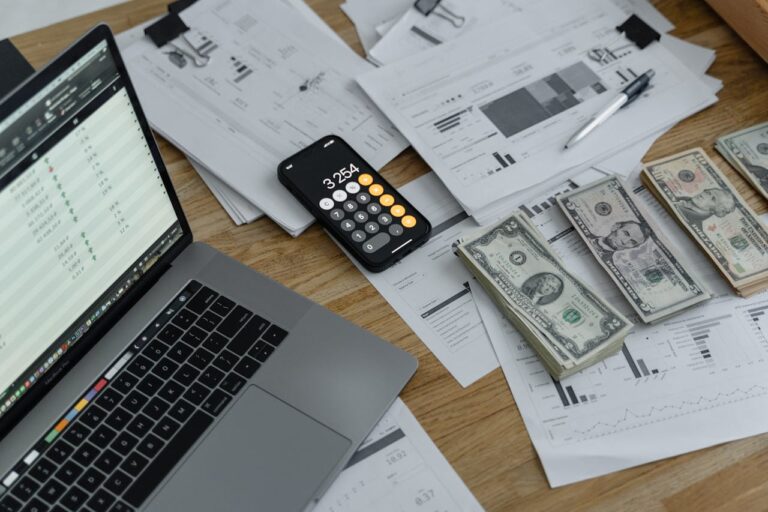Many professionals were still using an outdated, paper-driven, manual property management process until a decade ago. Rent collection was checks and trips to the bank and diligently keeping records. For maintenance requests, the tenant would call or talk face to face, and miscommunication and inefficiencies occurred. Fast forward to today, the digital wallets and automated systems have streamlined the industry, offering happier tenants with more streamlined workflows.
The Challenges of the Past
Property managers came face-to-face with many difficulties before the digital era:
- Unreliable Payment Methods: Paper checks were often delayed, lost in the mail, or bounced due to insufficient funds, this created cash flow issues.
- Time-Consuming Processes: Trips to the bank, manual bookkeeping, and chasing overdue rent took hours each week.
- Inefficient Maintenance Requests: Tracking and prioritizing repair requests was chaotic and time-consuming without a centralized system.
Property management was a reactive and often overwhelming job because of these challenges.
The Shift to Digital Tools
Digital tools mean a turning point for property management. Modern operations are built on the cornerstone of online payment systems and tenant portals. Digital solutions provide:
- Streamlined Rent Collection: Typically, online payment systems will allow regular methods, such as credit cards, and ACH transfers, and mobile wallets such as PayPal and Venmo. With recurring payments, tenants can reduce late fees and improve their cash flow.
- Centralized Maintenance Requests: With tenant portals, residents can submit complete maintenance requests with pictures, which speeds up the process for the property manager to get on it and deal with it faster.
- Automated Notifications: Reminders are now sent to systems as a rent due date, lease renewal, or some other important task to minimize manual follow-up.
Implementing these tools also allows property managers to standardize their workflows, therefore, tasks are handled consistently and professionally. For example, predefined workflows for handling maintenance requests or late payments can reduce confusion and save time, leading to a more seamless experience for both staff and tenants. These tools also help property managers maximize rental income.
Overcoming Barriers to Adoption
Transitioning to something new and forgetting the old ways is always challenging for professionals. The same goes for property management and the transition to digital transactions. There are some common barriers all property managers had to overcome at some point over the past decade:
- Resistance to Change: Some tenants, especially older generations, may initially hesitate to adopt digital payment methods.
- Choosing the Right Platform: With numerous property management tools available, you can only choose one that fits your needs after careful research and testing.
Often, these hurdles can be overcome by sponsoring flexible options including accepting checks during the transition period as well as training or tutorials to allow tenants and staff to get up to speed with the new system.
The Role of Cryptocurrency in Property Management
Cryptocurrency is emerging as a potential game-changer in property management. Some landlords and property managers have started accepting rent payments in Bitcoin, Ethereum, and other digital currencies, offering tenants additional flexibility. Blockchain technology, which underpins cryptocurrency, also enables secure and transparent transactions. Smart contracts stored on the blockchain can automate lease agreements, ensuring that payments and terms are executed without intermediaries. While crypto adoption in property management is still in its early stages, it has the potential to streamline processes and attract tech-savvy tenants.
The Impact of a Changing Housing Market
The housing markets constantly evolve and property managers must adapt to shifting trends and tenant expectations. Rising rental prices, fluctuating demand, and increasing competition mean that offering digital conveniences is mandatory. Tenants choose properties that provide ease of access, transparency, and streamlined processes. Digital tools not only enhance tenant satisfaction but also position properties as modern and desirable in competitive markets. Staying ahead with these innovations ensures long-term viability in a dynamic housing landscape.
The Benefits of Going Digital
Modern property management systems offer many advantages:
- Time Savings: Automated processes free up hours each week, allowing property managers to focus on strategic tasks like tenant retention and property improvements.
- Improved Cash Flow: Digital payment methods reduce late payments and provide instant visibility into payment statuses.
- Better Communication: Tenant portals streamline communication, ensuring all requests and updates are documented and easily accessible.
- Data-Driven Insights: Real-time analytics help property managers track trends, monitor expenses, and make informed decisions.
Embracing Emerging Technologies
Looking ahead, property management is going to benefit from even more advanced tools:
- Blockchain and Smart Contracts: These technologies can automate lease agreements, ensuring secure, tamper-proof transactions and reducing disputes.
- AI-Powered Maintenance: Predictive analytics can identify potential issues before they become major problems, optimizing repair schedules and reducing costs.
- Mobile Accessibility: Mobile-first platforms allow tenants and property managers to handle tasks on the go, enhancing convenience and engagement.
Final Thoughts
The evolution from checks to digital wallets represents more than just a technological upgrade—it’s a fundamental shift in how property management is approached. By embracing digital tools, property managers can reduce inefficiencies, improve tenant satisfaction, and stay competitive in a fast-changing industry. The future of property management is digital, and the time to adapt is now.

